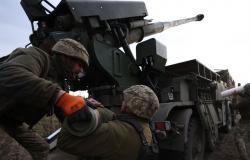Despite the agreement that should enshrine an autonomous status for Corsica in the French constitution, the violence has not yet subsided. The FLNC independence fighters believe the stakes are not high enough and the movement has repeatedly threatened to resume the armed struggle. In recent months, dozens of bomb attacks have been carried out on holiday homes owned by French people who do not live on the island, many of which were claimed by FLNC. The second home of Justice Minister Éric Dupont-Moretti was also attacked by nationalist demonstrators. Interior Minister Gérald Darmanin repeatedly suspended his visit to Corsica due to security concerns.
These targets were not chosen randomly. Almost a third of the homes in Corsica belong to non-island residents, often French from the mainland with a second home. Moreover, the population grew by more than 20 thousand people in five years, mainly due to the arrival of French people from the mainland who settled in Corsica – colonization, in the eyes of the FLNC. This has made it difficult for many islanders, including middle-class people, to find affordable housing. According to the French statistics agency Insee, almost 20 percent of the Corsican population lives below the poverty line.
‘Burgeoning violence?’ On the terrace in Cargèse, Andréa shrugs his shoulders about the recent bombings. ‘Please note: this only concerns material damage, there are no fatalities.’ A warning to the people who buy a house here only to make money on Airbnb, while taking the soul out of a village and driving up prices. “They don’t do anything for the community, and community is important here.”
Tags: death nationalist opened autonomy Corsica long French taboo






